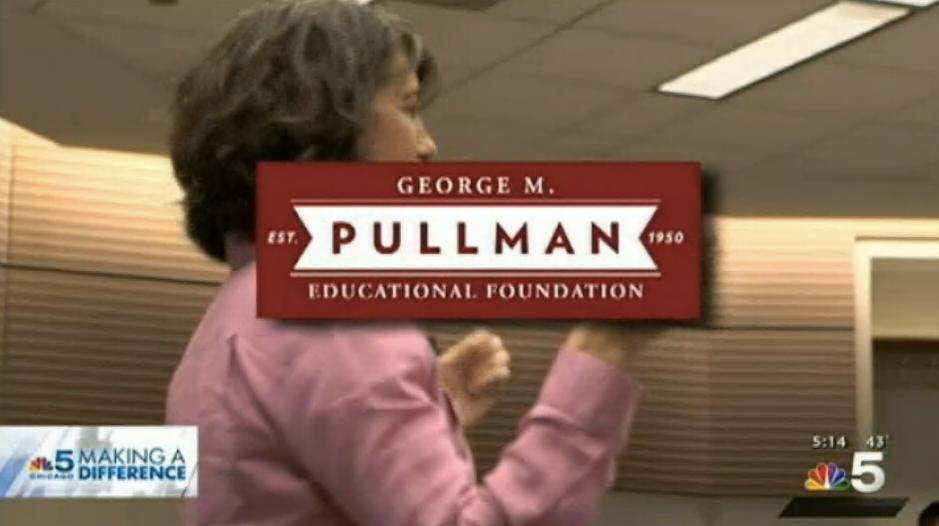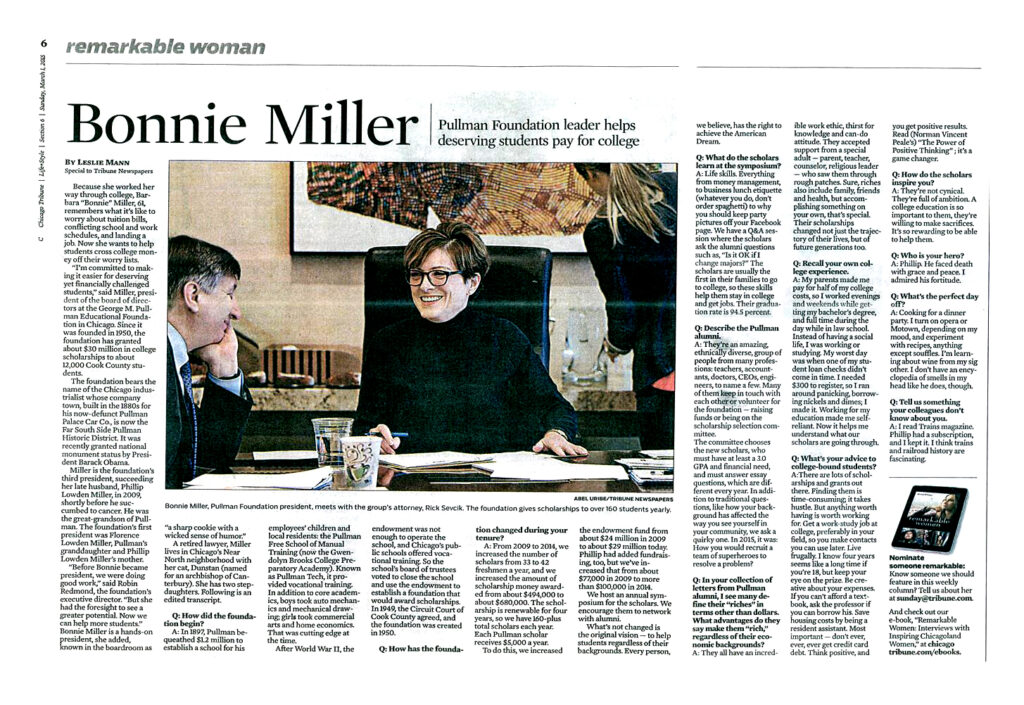The Foundation was featured on NBC 5 Chicago’s Making a Difference segment with LeeAnn Trotter. […]
See the Foundation on NBC 5 Chicago News


The Foundation was featured on NBC 5 Chicago’s Making a Difference segment with LeeAnn Trotter. […]

Bonnie Miller, the Foundation’s board president, was featured as March 2015’s Remarkable Woman in the Chicago Tribune. Read the full article here. “Before Bonnie became president, we were doing good work,” said Robin Redmond, the foundation’s executive director. “But she had the foresight to see a greater potential. Now, we can help more students.” Bonnie […]
Read More… from Barbara Miller, Pullman Foundation Board President Featured in Chicago Tribune
Five Pullman Scholar Alumni share how the Pullman Foundation impacted their lives. “I am a graduate of Wendell Phillips High School (in Chicago’s Bronzeville neighborhood) and Northwestern University. I grew up in the Ida B. Wells Homes and the Clarence Darrow Homes (former public housing projects in Bronzeville ). I am one of seven children […]
Read More… from Pullman Scholar Alumni Testaments to the Pullman Legacy
By Shawn J. Mayberry, Guest Blogger, Pullman Scholar Alumnus. In 2011, I graduated from Loyola University Chicago with my communications degree. It was the most exciting (and scariest!) time of my life. With scholarships and other money saving strategies, I graduated with less than $15,000 in student loan debt at a private university with an […]
By Shawn J. Mayberry, Guest Blogger, Pullman Scholar Alumnus. In 2011, I graduated from Loyola University Chicago with my communications degree. It was the most exciting (and scariest!) time of my life. With scholarships and other money saving strategies, I graduated with less than $15,000 in student loan debt at a private university with an […]

By Shawn J. Mayberry, Guest Blogger, Pullman Scholar Alumnus. In 2011, I graduated from Loyola University Chicago with my communications degree. It was the most exciting (and scariest!) time of my life. With scholarships and other money saving strategies, I graduated with less than $15,000 in student loan debt at a private university with an […]
Take Deep Breaths and Move Forward. Between exams, essays, friends, family, extracurriculars, finances, and worries about the future, we know that life for a college student can be stressful. So, relax, take a few breaths (tip #1!), and spend a few minutes managing stress. Deep Breaths Feeling overwhelmed? Panicked? Anxious? Give yourself a moment to […]
Take Deep Breaths and Move Forward. Between exams, essays, friends, family, extracurriculars, finances, and worries about the future, we know that life for a college student can be stressful. So, relax, take a few breaths (tip #1!), and spend a few minutes managing stress. Deep Breaths Feeling overwhelmed? Panicked? Anxious? Give yourself a moment to […]